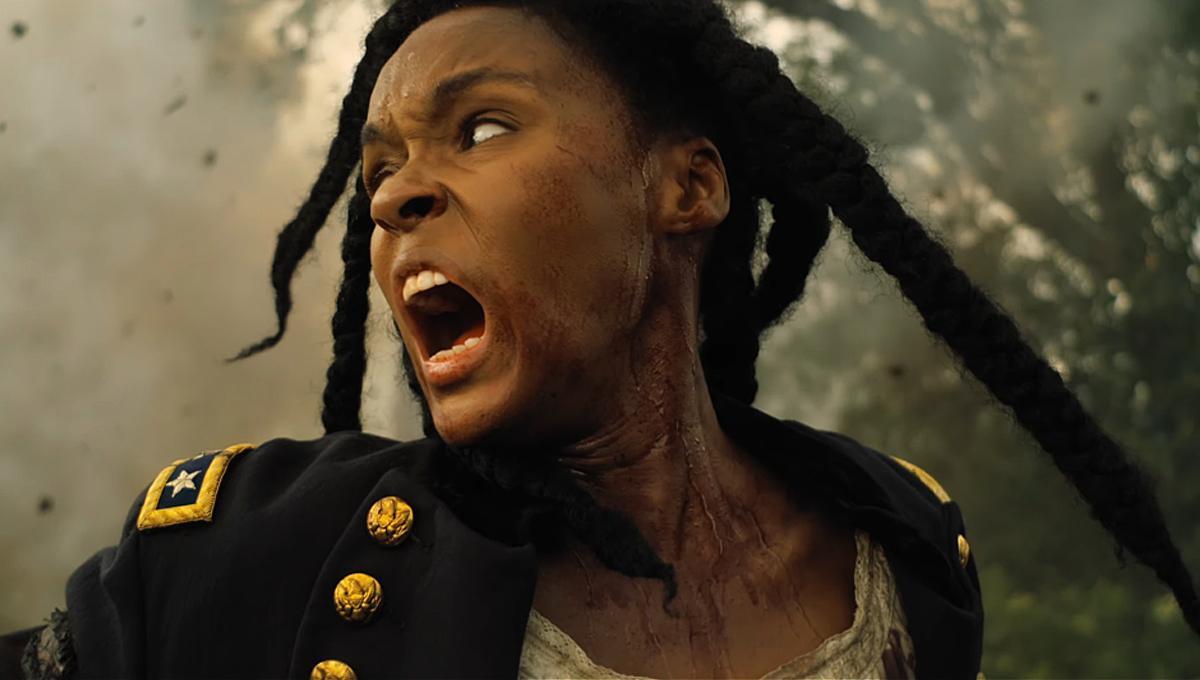Antebellum
 for disturbing violent content, language, and sexual references.
for disturbing violent content, language, and sexual references.
Reviewed by: Alexander Malsan
CONTRIBUTOR
| Moral Rating: | Very Offensive |
| Moviemaking Quality: |
|
| Primary Audience: | Adults |
| Genre: | Horror Mystery Thriller |
| Length: | 1 hr. 45 min. |
| Year of Release: | 2020 |
| USA Release: |
September 18, 2020 (on most Internet streaming services) DVD: November 3, 2020 |
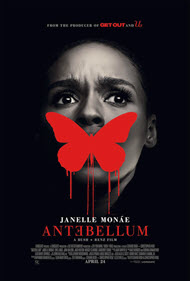

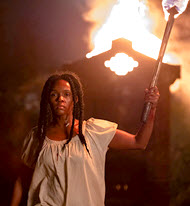
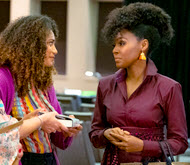
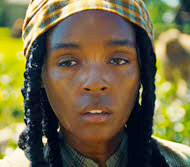
Heavy-handed social commentary and activism in many recent theatrical movies
Brutality / torture / appalling physical abuse / abject misery
FILM VIOLENCE—How does viewing violence in movies affect families? Answer
About the fall of mankind to worldwide depravity
What is SIN AND WICKEDNESS? Is it just “bad people” that are sinners, or are YOU a sinner? Answer
RACISM—What are the consequences of racial prejudice and false beliefs about the origin of races? Answer
Does the Bible condone slavery? Answer
Murder of slaves
Sexual abuse and rape of female slaves
Gender equality movement
Black female Feminism movement
Patriarchy as described by modern Leftists and Feminists

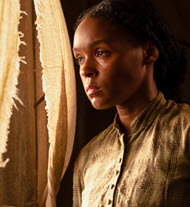
| Featuring |
|---|
|
Janelle Monáe … Eden / Veronica Jena Malone … Elizabeth Eric Lange … Him Tongayi Chirisa … Eli / Professor Achok Majak … Amara (Ghanaian Queen) Jack Huston … Captain Jasper Kiersey Clemons … Julia See all » |
| Director |
|
Gerard Bush Christopher Renz |
| Producer |
|
Gerard Bush Christopher Renz See all » |
| Distributor |
Eden, an African American slave, has been trapped on a plantation in Antebellum Louisiana for quite some time. The plantation work is grueling day in and day out. The abuse, however, is far worse; and when she and the workers aren’t being abused, both physically and mentally, those that have outlived their purpose are sent to the hut and burned to death. Sure, Eden and the other workers, including her friend Julia, have attempted a couple times to escape the plantation, but each time has resulted in their recapture and, of course, abuse.
Her co-workers come to her one last time asking, “When Eden? When?” Eden says, “Not yet.” In secret, Eden continues to learn the mistakes of her past. Her co-workers return. “When?” they ask. “Not yet,” Eden states. Julia screams at Eden claiming that Eden is afraid to escape and will forever be subjugated to the rule of the slave owners. Is patience really cowardice though?
The following night Eden whistles for the male co-worker. The time… is… now. The rest? Well, the rest you’d have to see for yourself.
The transitions between the scenes that involve Eden and Veronica (both played by Janelle Monáe) are so disjointed that at times the pieces don’t quite add up. While viewing, I thought, “Wait, how does that connect with that scene?” or “Wait, how does this happen and X, Y, and Z not occur in the process?” Oh and that twist that keeps getting advertised on Facebook? It’s not a major twist, and viewers will figure it out pretty quickly, I assure you, but I won’t be the one to reveal it.
The simplest way to describe “Antebellum” is: it’s in your face and all over the place. It mostly serves as a revolutionary Progressive Liberal propaganda statement from Hollywood, that promotes the following worldview: 1) white privilege is rearing its ugly head (as depicted through the use of the haughty nature of the white male and female characters of the South. For example, one male character has a scene in which viewers are led to assume he is a decent human being, but it turns out he certainly is not, and that 2) the inequality between white people and African-Americans has not improved in the slightest since pre-Civil War days. For example, there is but one white female character in the entire film who is a true genuine friend to African-American female character Vanessa. Every other white person who interacts with an African-American makes nasty looks at them and/or demeans them intentionally or unintentionally. One white waitress purposely seats three African-American females in a corner table away from the rest of the other restaurant patrons. And it gets much worse. The movie’s political messaging and propaganda is so constant that it is impossible NOT to notice.
“Antebellum” is produced by the same group who wrote the film “Get Out,” which I also reviewed. Do these type of films need to exist? Did they exist decades and decades ago? Some did, yes, but not the abundance of them that do now. Most films mainly existed to entertain, not preach! But director Gerald Bush is clear about his goal,
“I am super Black and grounded in my culture and heritage and the pride of that. I think that some of the wisdom that I’ve imparted to my partner in terms of what that experience is to be a Black person; part of that was my absolute disdain for ‘Gone With the Wind.’ I thought it was a horror film and I thought that it was a slap in the face to Black people, completely inaccurate and a piece of beautiful propaganda. We wanted to make something that showed the same story in a very different prism.”
Speaking further of “Gone With the Wind,” a reporter noted,
“He [Bush] was so incensed by the 1939 film that he hunted down the lenses used to shoot it ‘and rebuilt our cameras to shoot Antebellum with the same lenses that were used to shoot ‘Gone With the Wind’.”
“We were determined to correct the record with the same weaponry that they used to misinform with really effective, beautiful propaganda,” Bush said. “We got the lenses, rebuilt the cameras, and shot this movie on the same lenses so that we could correct the record with the same weaponry that they used to assault the image of Black people in this country.”
Gerard Bush went on to state his activist agenda for “Antebellum,”
“Our intention for the film is to serve as a prescription, a medicine, a catharsis. It’s really important that we get to a place in this country where we have the courage and the determination to confront our past, specifically this country’s original sin… And very possibly seeing our shared future robbed of all of us. I think our hope is that it activates people into action.” “…with Antebellum, we wanted to focus on the monsters that actually live among us now.”
Other Content of Concern
Violence: Heavy to Very Heavy. A character is roped then shot and executed off screen. A woman is whipped on a table. This same woman is later branded with a hot iron on her backside (we hear her scream). We see a woman being whipped with a belt. Male and female African-American characters are seen throughout the film being slapped, spit on, hit, or mistreated multiple times. One character even commits suicide by hanging themself (we don’t see the action, just the aftermath). A man is choked to death. A man is stabbed with a sword. People are burned in a smoke stack (we hear them scream). A woman is choked, dragged by a horse on a rope and her head hits a wall, killing her. A woman sets buildings on fire. A Civil War battle reenactment is seen occurring. A pregnant woman is kicked in the stomach and suffers a miscarriage. A man is killed with a hatchet.
Sexual Content/Dialog: White soldies are told that Black women are here to fill your every need whatever they may be. Women are raped. A girl becomes pregnant. A girl is told to leave the forest by an owner to prepare herself for a night with the corporal in the cabin. Eden is sexually abused by her slave owner, and he is shown forcing sex on her. Veronica wears a short bra and panties underneath her night clothing. Some sexual dialog occurs between Veronica and her co-workers at a dinner party. Veronica’s husband asks in a text if her breasts are on display.
Morals
I found the underlying theme of strength in the main character Eden. She endures so much sacrifice, so much pain and so much risk that it requires a great deal of strength to continue on to learn how to successfully escape the plantation and attempt to regain the life they lost before they were enslaved.
Strength is something we all rely on. When we reach our darkest hours, when we feel physically, mentally and perhaps spiritually drained, where does our strength come from? If we are Christians, it comes from our Lord Jesus. I know myself, as I was returning home this evening, talking to the Lord, I prayed for strength, telling Him my body has grown weary from certain issues, and that only HE can provide the necessary strength and peace that passes all understanding.
“God is our refuge and strength, an ever-present help in trouble. Therefore we will not fear, though the earth give way and the mountains fall into the heart of the sea, though its waters roar and foam and the mountains quake with their surging.” —Psalm 46: 1-3
“My flesh and my heart may fail, but God is the strength of my heart and my portion forever.” —Psalm 73: 26
“The Lord is my strength and my song; he has given me victory. This is my God, and I will praise him— my father’s God, and I will exalt him.” —Exodus 15:2
“But those who hope in the Lord will renew their strength. They will soar on wings like eagles; they will run and not grow weary, they will walk and not be faint.” —Isaiah 40:31
Final Thoughts
Overly-political, disorganized and at times offensive, “Antebellum” will be one of those films that most viewers will likely look back at and say, “That needed a rewrite.” With abundant violence, vulgarity and sexual dialog, this film certainly is not for children. I strongly recommend moviegoers skip this film. You can do much better.
- Vulgar/Crude language: Very Heavy— F-words (2 dozen or more), including… “I’m trying to f*ck tonight,” “You f*cking c*nt,” “motherf*cker”, s-words (5), “c*nt”, “d*ck pics” (1), “t*tties” (You got them t*tties out), a** (6), Ho activities (1), b*tch (1)
- Violence: Heavy to Very Heavy
- Profane language: Moderately Heavy— Jesus Christ (1), God d*mn (1), God (5)
- Sex: Heavy
- Nudity: Moderate
- Drugs/Alcohol: Moderate— Veronica and her friends are seen drinking. There is another scene involving alcohol as well at a party.
- Occult: None
“I’ve never thought of myself as a New Age person, but this felt really up close and intimate, it felt ancestral. I’m categorizing it as a nightmare because I was asleep and I was in a dream state, but it felt like I was receiving. The star of the dream was this woman, Eden. And she was so desperate to reach help and to escape her tormentor that it felt like she was screaming across dimensions. …The nightmare was essentially ‘Antebellum’… Most of the details that you see in the movie are from the nightmare.”
See list of Relevant Issues—questions-and-answers.


PLEASE share your observations and insights to be posted here.
